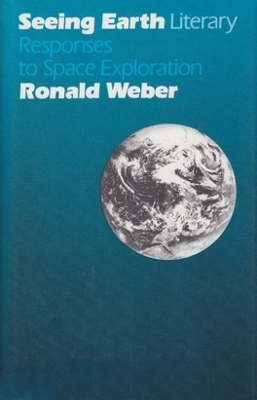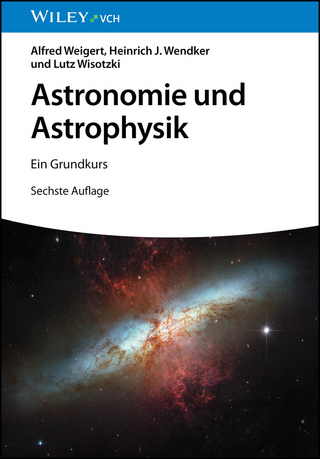
Seeing Earth
Literary Responses to Space Exploration
Seiten
1991
Ohio University Press (Verlag)
978-0-8214-0791-2 (ISBN)
Ohio University Press (Verlag)
978-0-8214-0791-2 (ISBN)
As our interest in space continues to grow, the cultural effects of space exploration become important. In Seeing Earth, Ronald Weber focuses on the literary response to this new frontier, examining an area of contemporary expression that has remained until now virtually untouched.
The author surveys what has been written about space exploration and calls attention to its dominant use as a means of deflecting attention back to earth and earthly concerns. As Norman Cousins states, the “most significant achievement of that lunar voyage (Apollo 11) was not that man set foot on the Moon, but that he set eyes on Earth.”
This timely study includes the responses of writers, scientists, historians, theologians, philosophers, and those who have experienced space first hand – the astronauts. Here we find, of course, Tom Wolfe and The Right Stuff, Carl Sagan, James Michener, and Norman Mailer. But Weber also discusses Oriana Fallaci, Ben Bova, Ken Kesey, Saul Bellow, Ray Bradbury, and others as they offer a literary embodiment of this newest and perhaps ultimate phase of American journeying, the newest New World, the darkest frontier.
Weber finds that in the first quarter-century of the space age our writers have been more attentive to the familiar attractions of earth than the mysteries of outer space, paradoxically in their accounts of space returning us to earth. Seeing Earth is offered, however, as a preliminary report. The era of the space shuttle, with the promise of routine journeys in space, may well alter the response of writers. We may come to see ourselves at home in space. But so far the deepest sympathies of our writers have been directed to the origin of space rockets more than their exotic destinations. Weber shows us that our literary accounts of space journeys have given us new instruction about earth and earthly life.
The author surveys what has been written about space exploration and calls attention to its dominant use as a means of deflecting attention back to earth and earthly concerns. As Norman Cousins states, the “most significant achievement of that lunar voyage (Apollo 11) was not that man set foot on the Moon, but that he set eyes on Earth.”
This timely study includes the responses of writers, scientists, historians, theologians, philosophers, and those who have experienced space first hand – the astronauts. Here we find, of course, Tom Wolfe and The Right Stuff, Carl Sagan, James Michener, and Norman Mailer. But Weber also discusses Oriana Fallaci, Ben Bova, Ken Kesey, Saul Bellow, Ray Bradbury, and others as they offer a literary embodiment of this newest and perhaps ultimate phase of American journeying, the newest New World, the darkest frontier.
Weber finds that in the first quarter-century of the space age our writers have been more attentive to the familiar attractions of earth than the mysteries of outer space, paradoxically in their accounts of space returning us to earth. Seeing Earth is offered, however, as a preliminary report. The era of the space shuttle, with the promise of routine journeys in space, may well alter the response of writers. We may come to see ourselves at home in space. But so far the deepest sympathies of our writers have been directed to the origin of space rockets more than their exotic destinations. Weber shows us that our literary accounts of space journeys have given us new instruction about earth and earthly life.
Ronald Weber is Professor of American Studies at the University of Notre Dame and the author of many books, both fiction and nonfiction. He is the editor of The Reporter as Artist: A Look at the New Journalism Controversy.
| Erscheint lt. Verlag | 10.11.1991 |
|---|---|
| Verlagsort | Athens |
| Sprache | englisch |
| Themenwelt | Sachbuch/Ratgeber ► Natur / Technik ► Weltraum / Astronomie |
| Geisteswissenschaften ► Sprach- / Literaturwissenschaft ► Anglistik / Amerikanistik | |
| Geisteswissenschaften ► Sprach- / Literaturwissenschaft ► Literaturwissenschaft | |
| ISBN-10 | 0-8214-0791-0 / 0821407910 |
| ISBN-13 | 978-0-8214-0791-2 / 9780821407912 |
| Zustand | Neuware |
| Haben Sie eine Frage zum Produkt? |
Mehr entdecken
aus dem Bereich
aus dem Bereich
die Suche nach der Urkraft des Universums
Buch | Hardcover (2023)
Klett-Cotta (Verlag)
CHF 34,95
Perspektiven auf die Menschheit
Buch | Hardcover (2024)
Klett-Cotta (Verlag)
CHF 34,95


